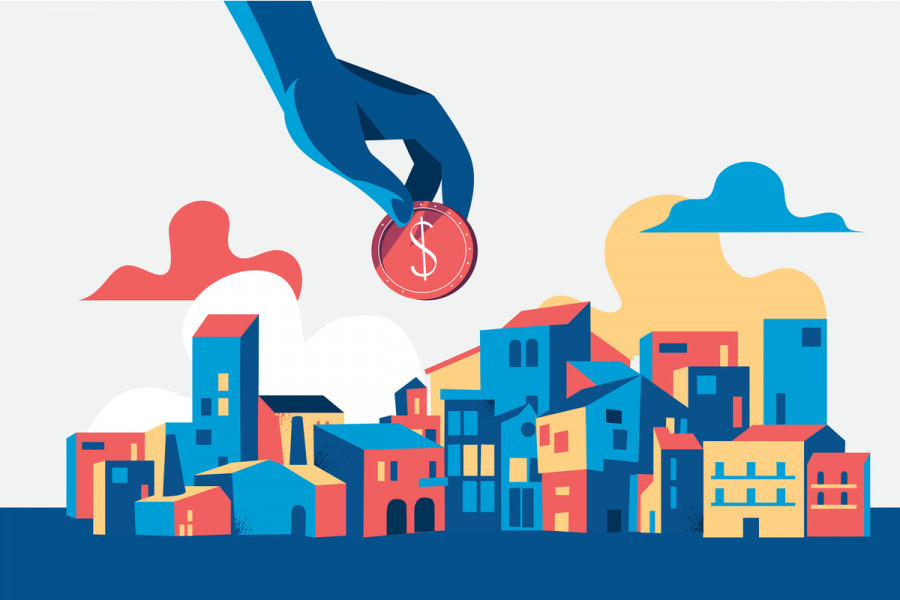Editorial
Half-empty economic cup
If the prime minister wants to pep up the economy, he should start by correcting his own inconsistencies.
Some signs suggest a rude health of the national economy. Nepalis abroad sent Rs136.97 billion in the mid-September to mid-October period, the highest ever monthly remittance in the country’s history. With this, gross foreign exchange reserves jumped by 6.7 percent to Rs1.64 trillion in mid-October 2023, up from Rs1.53 trillion in mid-July 2023. The banks and financial institutions sit on Rs500 billion in cash, and a more-than-healthy 120,000 tourists entered the country in October. And yet the economy is far from being on a strong footing. First, even though the financial institutions are awash in cash, only a few are taking out loans, partly because of the high interest rates and partly because would-be entrepreneurs espy no climate to do business. The sad corollary to the rapid rise in remittance is that more and more young folks are leaving the country to work and study—many to never come back. With above a million people heading out of the country every single year, the demand for consumable goods has also shrunk rapidly, acting as another big damper on the economy.
People in their 20s and 30s tend to spend a lot on restaurants, shops and various online services. Yet this cohort of people is disappearing by the day. For instance, the number of subscribers to mobile data packs is down and so is the demand for handsets. Even in the country’s major business hubs small- and medium-sized shops are shutting down for good. As a result, all the money is parked in the banks and the economy has lost its zing. Despite all this, the business climate would be a lot brighter had the government been able to spend its development budget, giving a boost to construction-related industries. But, in any given year, our governments cannot spend over a third of the allocated budget. With most avenues of cash drying up, private sector companies cannot pay their employees on time. There is a new wave of layoffs, too. And what makes everything worse is the persistent, above 7 percent inflation, which has decimated people’s purchasing power. With so little financial room, most people are in the mood to save what little they have and earn.
Prime Minister Pushpa Kamal Dahal admitted on Tuesday that although the economy has shown some positive signs of late, it is still under all kinds of pressure. He added that if all the stakeholders did not come together to solve the country’s economic woes, the current crisis would deepen. He is right. But to start with, the prime minister could himself stop unnecessarily meddling in the economy. For example, he recently ordered the revision of fuel prices by jettisoning the scientific auto-pricing mechanism. Dahal also rolled back, through diktat, the government’s decision to remove costly subsidies on fertiliser. The inconsistencies in policies and decisions at the level of the prime minister set a terrible precedent and decimate business confidence. Let Prime Minister Dahal first walk his talk. The plans and actions of his government to resurrect the economy would then sound a lot more credible.




 10.12°C Kathmandu
10.12°C Kathmandu













